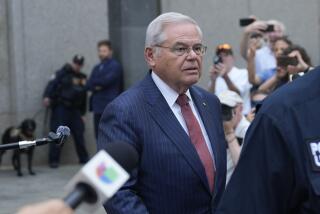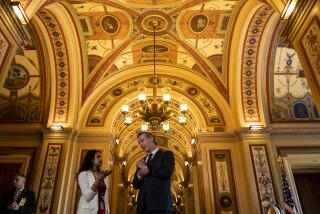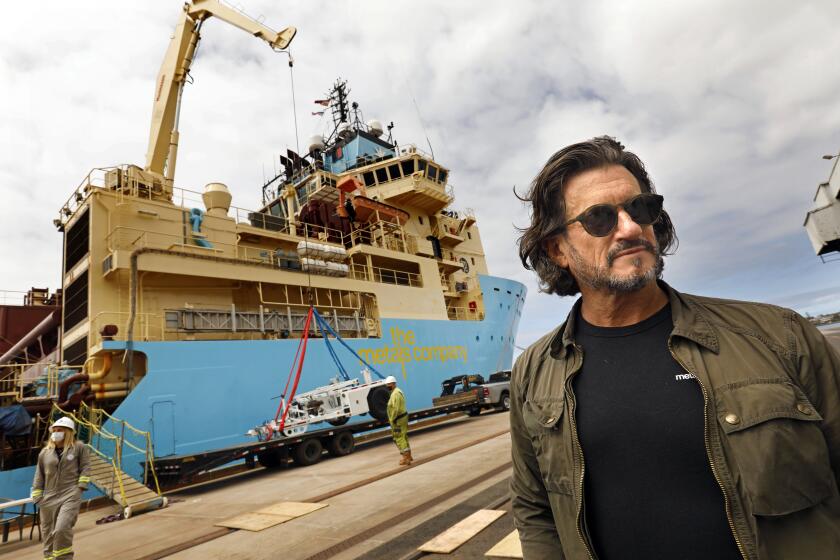As Gov. Chris Christie bids farewell, many in New Jersey say good riddance
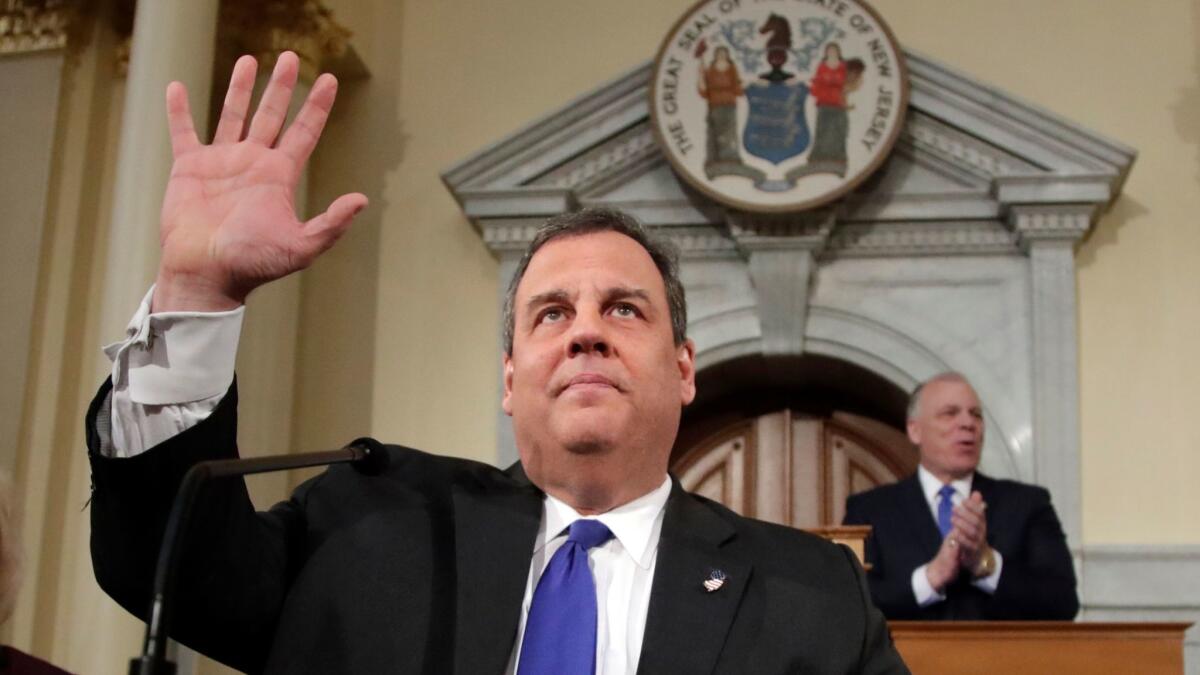
In the days after Superstorm Sandy ravaged New Jersey, Gov. Chris Christie crisscrossed the state, assessing damage, hugging evacuees and projecting the image of a man in charge. In a famous show of bipartisanship, he welcomed President Obama to New Jersey as the state sought federal funds to help with damage.
Christie’s popularity and job approval ratings reached their apex in February 2013, a few months after the storm and seven months before his reelection bid. At that time, 70% of residents viewed him favorably and 73% approved of the job he had done.
But on Tuesday, as Christie delivered his final State of the State address — in which he spoke triumphantly of his achievements — a Rutgers University poll showed that just 13% of New Jersey residents had a favorable impression of him. It was the lowest rating of any New Jersey governor since Rutgers began polling residents nearly 50 years ago.
His Democratic successor, Gov.-elect Phil Murphy, will take office Jan. 16. For some New Jersey residents, Christie’s last day in office can’t come soon enough.
“We’ve been counting down the clock,” said Susie Felber, a mother of two school-age children who lives in Weehawken, across the Hudson River from midtown New York City.
Felber said she never liked Christie, both because of his combative personality and his policies, particularly his decision to cap school superintendents’ salaries.
“If he had run again, I would have voted for my neighbor’s dog. I would have voted for anyone to get rid of Christie,” she said.
Yet for much of his first term, his approval ratings hovered around 50%, said Ashley Koning, director of the Eagleton Center for Public Interest Polling at Rutgers University. And they shot up after Superstorm Sandy.
“This was a time in which he really shone,” Koning said. “The image and leadership and the strength that he portrayed, the actions that he took … really propelled him to become this beacon of hope and bipartisanship.”
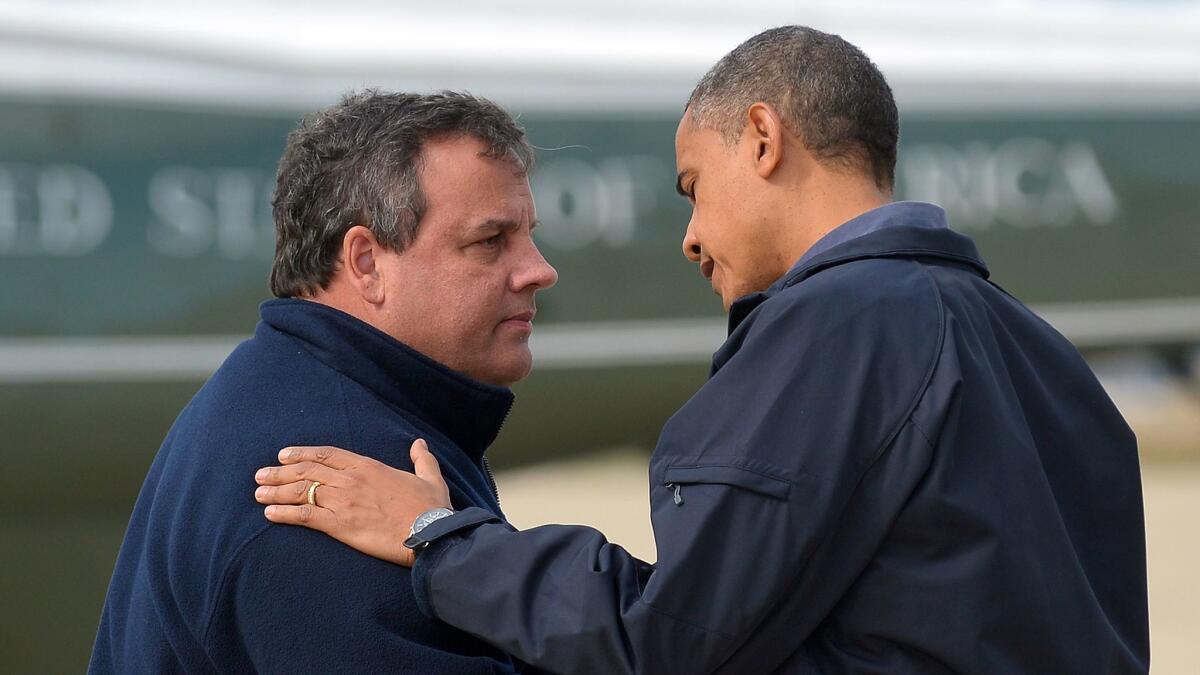
Christie, who was appointed by President George W. Bush as U.S. attorney for the District of New Jersey, defeated Democratic incumbent Jon Corzine by a narrow margin in 2009. He presided over a slow economic recovery following the 2008 recession, and in his Tuesday address said, “The state of our state is very good and, without question, much, much better than it was eight years ago.”
Christie, who said he ran “to be a governor of consequence,” boasted of his record on economic issues, including reducing unemployment, balancing the budget, cutting property and corporate taxes and tackling the state’s costly pension system.
He also touted his administration’s work — often in collaboration with Democrats — improving higher education, implementing criminal justice reforms such as eliminating cash bail, tackling the opioid epidemic and, perhaps most notably, recovering from Superstorm Sandy.
“Whenever I’m asked about what I’m most proud of in the last eight years, I say it very simply: The days, weeks, months and years since Sandy and the way our government handled it,” Christie said.
Christie was handily reelected in 2013, with many Democrats supporting him. Speculation ramped up that he would become the Republican Party’s presidential nominee in 2016.
But in early 2014, the Bridgegate scandal broke. News that aides to Christie had ordered lane closures on the heavily trafficked George Washington Bridge between New Jersey and New York, allegedly as a form of payback against the mayor of Fort Lee — and subsequent convictions of those aides — shattered public good will and reinforced the perception that Christie was a bully.
“It was indicative of a larger perception about how the Christie administration governed,” said Brigid Harrison, a professor of political science and law at Montclair State University. “What many New Jerseyans viewed as someone who told it like it is became something more aggressive and volatile.”
Christie himself was never charged and still decided to launch a presidential campaign. His frequent absences from New Jersey to campaign — totaling 72% of the days in 2015 — did nothing to endear him to the residents of his state.
Nor did his continued support, after his own candidacy came to an end, of Donald Trump.
“It was viewed as a blatantly politically calculated decision,” Harrison said. “It was widely recognized that he was doing so in hopes of becoming the vice president pick or the attorney general pick or a Cabinet pick.”
In his last year in office, Christie, never one to worry much about optics, continued to clash publicly with residents of his state.
An image of him sunning at a beach over July 4th weekend while it was closed to the public because of a government shutdown was widely panned. He traded barbs with callers on a New York sports radio show where he auditioned to be a host. And he got into a spat with a voter from his own township.
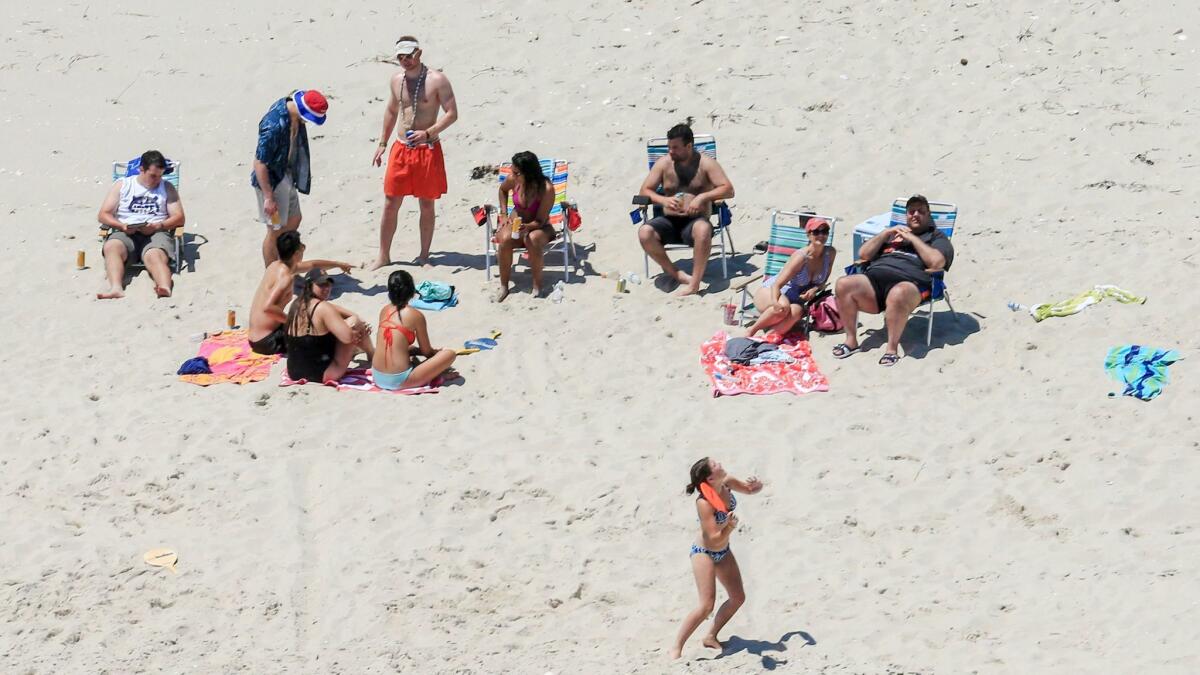
On Tuesday, in the waterfront town of Hoboken, a group of middle-aged men bantered about the governor while shooting pool and singing along to Frank Sinatra songs at Louise and Jerry’s bar.
“His ambition did him in,” said retired fire chief Rich Tremitiedi. “He was looking far down the road for a long time, even before he was governor.”
David Shehigian, who works in nonprofit administration, said Christie hadn’t been a friend of the people of New Jersey.
“When you see your governor in the box with the owner of the Dallas Cowboys … it sends a signal to the people of the state. When you’re photographed at the beach while every other beach in the state is closed — these are the images Christie leaves us with,” Shehigian said.
He had two final words for the governor: “Good riddance.”
Twitter: @AgrawalNina
More to Read
Sign up for Essential California
The most important California stories and recommendations in your inbox every morning.
You may occasionally receive promotional content from the Los Angeles Times.
